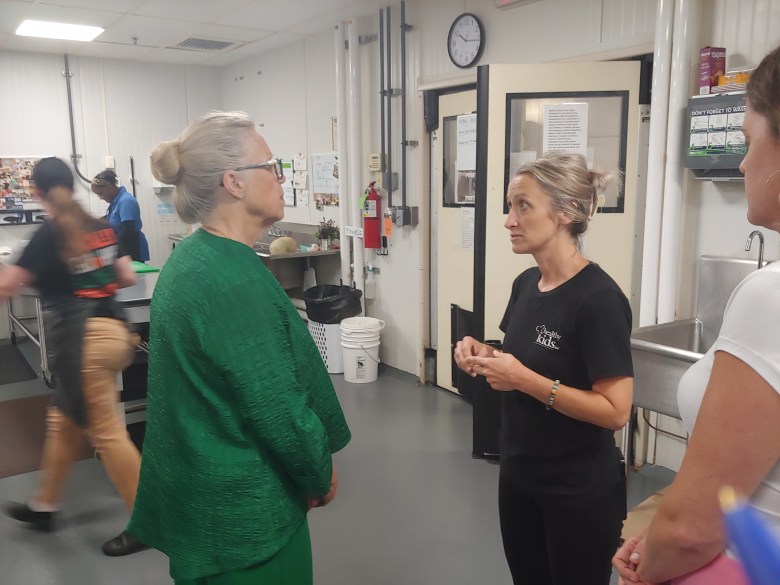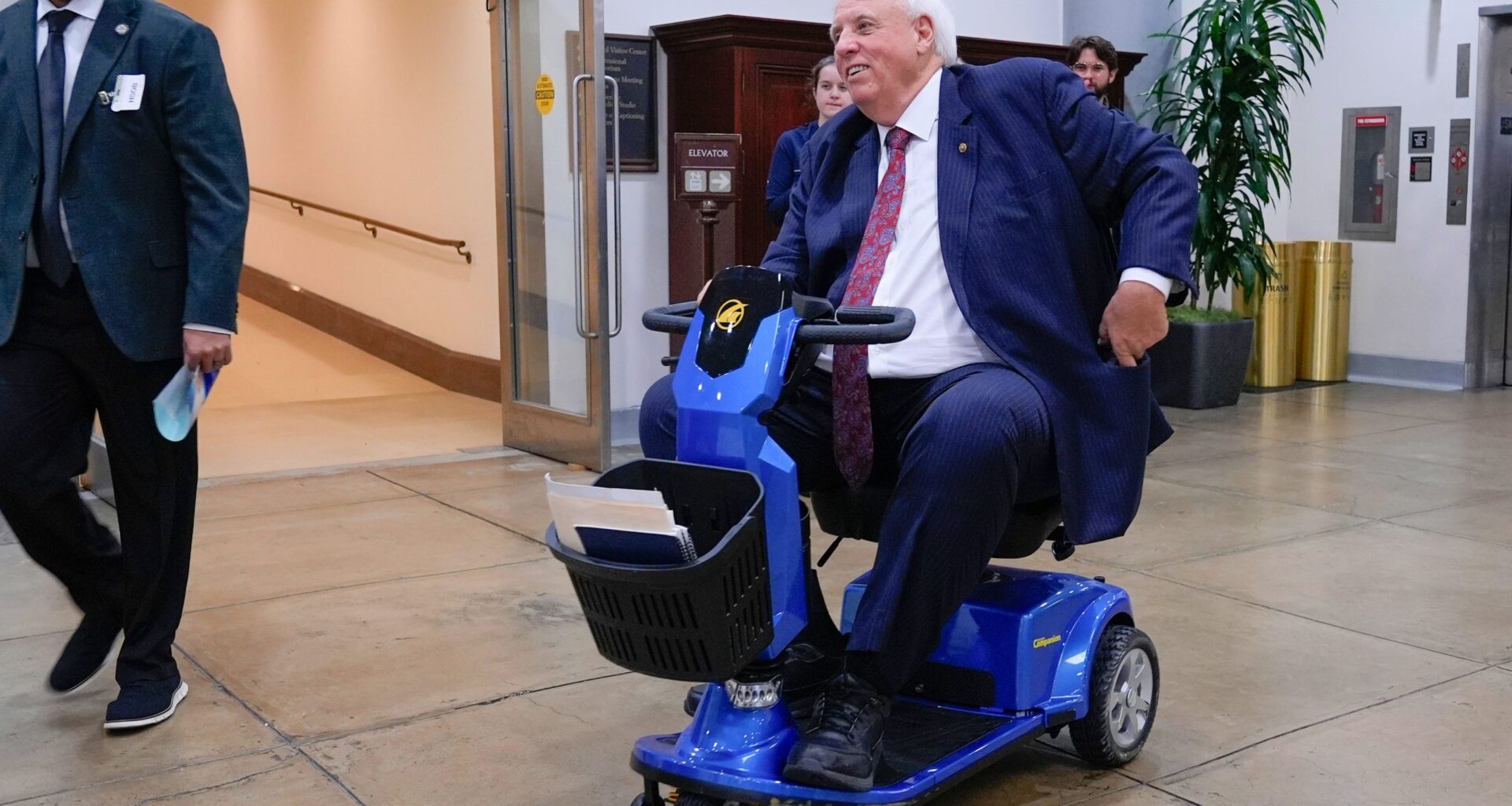UPDATE 10/1/2025: Last night, the Senate failed to pass two spending bills to keep the government open, leading to a government shutdown at midnight. Sen. Shelley Moore Capito and Sen. Jim Justice voted in favor of one version without the Affordable Care Act subsidies and voted against another version with the subsidies.
The health care of thousands of West Virginians hangs in the balance as lawmakers in Washington D.C. squabble over a bill to keep the federal government running.
And so far, West Virginia’s four Republican lawmakers aren’t doing much about it.
The federal government is set to close on Oct. 1, when the new budget year goes into effect, unless a short-term bill to keep the lights on is passed. However, the bill would not fund the Affordable Care Act subsidies, which are set to expire at the end of the year.
The subsidies act much in the same way as employer-based insurance works. In that case, a worker at a company pays a portion of their premium, while the company also pays a portion. However, in the case of ACA subsidies, it’s the federal government paying for a portion of the premium.
Democrats in Congress argue those subsidies need to be locked in so people shopping for plans later this fall can know how much they’ll be paying.
Ellen Allen, executive director of West Virginians for Affordable Health Care, said more than 60,000 people in the state — including herself — rely on getting their health care from the ACA Marketplace Exchange.
Without the subsidies, Allen said families could see their health insurance premiums — the amount paid per month — skyrocket by hundreds of dollars.
For instance, Allen said she pays $497 per month for her health insurance. Without the tax credit, it would cost her $2,800 a month.
But while a few Republicans in Congress have expressed concerns about the subsidies ending — and millions of Americans becoming uninsured as a result of being unable to afford the premiums — West Virginia’s delegation isn’t among them.
“This government funding package is not the correct vehicle to address something like this,” said Will O’Grady, a spokesman for Sen. Jim Justice. “He believes the discussion to be had on this issue shouldn’t be under the gun of a government shutdown.”
Sen. Shelley Moore Capito, Rep. Riley Moore, and Rep. Carol Miller were asked what they proposed to do to help these West Virginians. They did not respond.
Miller, so far, has been characteristically quiet, although she did vote for a version of the funding bill that did not include subsidies.
 Rep. Carol Miller, R-W.Va., (right) speaks with Mandy Curry, owner of Healthy Kids Inc., in Huntington during a tour of one of its kitchens. Photo by Henry Culvyhouse / Mountain State Spotlight
Rep. Carol Miller, R-W.Va., (right) speaks with Mandy Curry, owner of Healthy Kids Inc., in Huntington during a tour of one of its kitchens. Photo by Henry Culvyhouse / Mountain State Spotlight
In September, Moore appeared on Fox News’ Mornings with Maria. He accused Senate Minority Leader Chuck Schumer, D-NY, of “playing games.”
“What Chuck Schumer is putting in this bill is $1.5 trillion in additional spending,” he said. “It’s to give healthcare, again, to illegal immigrants.”
No one wants what’s in the Democrats’ CR. It is a train wreck. @SenSchumer stuffs in $1.4 TRILLION in spending on COVID era health subsidies and gives subsidies and benefits back to illegal immigrants! The Dems are playing games and holding the American people hostage. It’s… pic.twitter.com/wXw3dUxM1Q
— Rep. Riley M. Moore (@RepRileyMoore) September 19, 2025
The $1.5 trillion is part of a Democrat proposal that was shot down prior to the Congressional recess. It would’ve extended the subsidies and restored cuts to Medicaid funding. And as the Kaiser Family Foundation reports, many immigrants cannot qualify for federal health care programs.
But as Rhonda Rogombé, a health care analyst with the left-leaning West Virginia Center on Budget and Policy is quick to point out, most people using the subsidies are working West Virginians.
“These are families that work in small businesses, or own small businesses or are self-employed in jobs that don’t offer affordable health coverage,” she said.
As the shutdown deadline looms — and families are soon picking out health insurance — Capito said she is concerned, but like Justice, she believes there’s time to fix the subsidy issue before Dec. 31, according to a report last week by MetroNews.
But insurance companies are already assuming the worst by submitting premium increases for 2026 based on the idea that there won’t be any subsidies. Rogombé said the time to act is now.
“We don’t have time to sit on our hands and decide whether or not we’re going to offer people the necessary help that they need,” Rogombé said.
